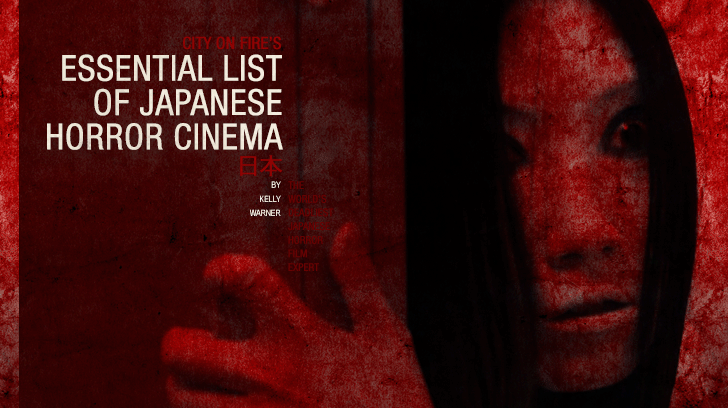
Asian Horror has become a popular sub-genre for horror fiends in recent years with the arrival of directors like Takashi Miike, Chan-wook Park, and the Pang Brothers. With a few notable exceptions, the horror cinema from Hong Kong and China has some difficulty attracting world audiences, partly due to censorship in their own film industry and also due to the tendency to rely upon comedy and folktales that don’t always translate so well to audiences overseas. By comparison, South Korea’s horror cinema is almost instantly relatable to foreign audiences, because it often focuses on universal character traits like grief, revenge, and madness. South Korea’s horror films even manage to sneak their way into high art film festivals, places that would usually snub their noses at the genre if it came from almost anywhere else. But South Korea’s booming film industry is young. As a Westerner, it’s difficult to track South Korea’s horror cinema to before the late 90’s with any kind of helpful insight. Japan, however, is another story. And that’s the story I’m going to attempt to tell today.
Japan’s film industry dates back to the silent era. There was at least one year in the Golden Age of Japanese Film (1950s-60s) where Japanese studios outdid their Hollywood equals in terms of film output. And many of these films (but by no means all) made their way to foreign shores for audiences to discover over the years. Today, the Japanese film industry has slowed down, but that’s not to say that the country is lacking in master filmmakers. And more than a few of those filmmakers cut their teeth in the horror genre.
There are three types of film that Japan has always produced with regularity and skill; the family drama (think Ozu, Naruse, and more recently Koreeda), the sci-fi spectacles (think Godzila, Ultraman, and Gamera), and the horror film (think creepy dead girls with black hair crawling out of television sets). I’m going to be focusing on the essential horror films to come out of Japan over the years, starting with the silent era and then working our way up to modern film.
My goal in writing this piece is to share some of the best and most influential Japanese horror movies with the crowd. Your list of movies and your observations may be different from mine, and that’s cool. If I overlooked any horror classic, then please join in on the discussion by leaving a comment.
A PAGE OF MADNESS (1926 – Teinosuke Kinugasa)
A low-budget silent film from former kabuki onnagata actor Teinsokue Kinugasa, A Page of Madness is a stylish trip into insanity that could be considered Japan’s answer to The Cabinet of Dr. Caligari (1920).
A man takes a job as a janitor in a gloomy insane asylum so that he may be close to his wife, who is now an inmate. It’s his past treatment of her that edged her towards madness and compels his guilty conscience to watch over her now.
With no intertitles, it’s not an easy film to follow. Originally silent films in Japan had a live narrator in the theatre, but the narrator’s text has been lost. Actually, we’re lucky we can see any of the film at all. Originally thought lost for forty years, director Kinugasa eventually discovered the film in a shed’s can of rice. However, even that discovery was incomplete, as there are many minutes of the film that will likely be lost forever. What survives is a surreal, impressionistic art film that’s both somber and disturbing. Whether the film was originally easier to follow and gave audiences clearer answers, we can only guess.
The film was a big box office success, though, and proved that audiences were open to more avant-garde pictures at the cinema. In the years after A Page of Madness, director Kinugusa would win a foreign film Oscar and Grand Prize at Cannes for his dark historical drama, Gate of Hell. Writer Yasunari Kawabata would go on to win the Nobel Prize for Literature. And assistant cameraman Eiji Tsuburaya would become the godfather of Japanese special effects.
GODZILLA (1954 – Ishiro Honda)
I hesitated to add Godzilla to this list because it’s more of a sci-fi film. But take a moment to watch the original film and maybe you’ll see why I considered it essential when discussing Japanese horror.
Less than a decade after the atomic bombs dropped on Hiroshima and Nagasaki, Toho studios created a monster that was the living embodiment of nuclear holocaust and unleashed it upon Tokyo. The result is a dark, somber story of survival in the face of radioactive oblivion. Additional subplots, like the tragedy of the Lucky Dragon fishing boat that strayed too close to an American nuclear test and the ‘radioactive tuna’, add to the paranoia of the time.
The original Godzilla may not scare audiences like it once did, but consider the anxious audiences watching it so shortly after WWII and you can imagine how it scared theatregoers in 1954.
THE GHOST OF YOTSUYA (1959 – Nobuo Nakagawa)
There’s something comforting about seeing favorite horror tales remade again and again through the ages. We love our many variations of Dracula, Frankenstein, Invasion of the Body Snatchers, etc. In Japanese film, they return to the ghost story Yotsuya Kaidan over and over again. As the story goes, the samurai Iemon wants to marry the lovely Oiwa.
However, Oiwa’s father doesn’t approve, so Iemon kills him. Much to Iemon’s chagrin, this marriage doesn’t bring him the money and stature he was imagining for himself, so he decides to poison his wife and pick a new bride. In the end, the ghosts return to haunt Iemon for his murderous, greedy ways.
It’s an old-fashioned ghost story with no extra filler. Others may have a different favorite adaptation of the tale but I always come back to Nakagawa’s film. It’s a creepy, beautifully filmed horror drama. Nakagawa would return to the horror genre frequently during his career with other similar tales about curses and damnation, with films like Jigoku, Snake Woman’s Curse, and Black Cat Mansion.
Other Yotsuya Kaidan adaptations include Keisuke Kinoshita’s two-part The Yotsuda Phantom (1949) with Kinuyo Tanaka, Shiro Toyoda’s Illusion of Blood (1965) starring Tatsuya Nakadai, Kinji Fukasaku’s Crest of Betrayal (1994) with Saki Takaoka, Takashi Miike’s Over Your Dead Body (2014) featuring Ko Shibasaki, and there is even apparently an anime adaptation.
JIGOKU (1960 – Nobuo Nakagawa)
Also known as The Sinners of Hell, Jigoku provides viewers with just about the most pitiless depiction of Hell that cinema has ever seen.
The film begins a little slow with an ensemble cast of characters engaging in murder, adultery, and vengeance. Things get more interesting after our characters start to die. Shiro, the closest thing we have to a hero, goes to Hell where he finds out that he has a daughter who is drifting down a river to the underworld depths. It becomes the father’s quest to navigate Hell and save his daughter’s spirit from a terrible, never-ending fate.
Films don’t get much bleaker than Jigoku. While the storytelling on the mortal plane is occasionally uninteresting, the film has achieved classic status thanks to its bizarre horror visuals. You won’t soon forget this vision of Hell.
Jigoku is also remembered as the film that killed the Shintoho studio with its big budget and lackluster box office. In truth, Shintoho was going out of business and Jigoku was something of a last hurrah. That the film didn’t make much money certainly added to its legacy as a studio killer, though.
MATANGO (1963 – Ishiro Honda)
A professor, a skipper, a singer, a student, a writer, and a playboy on a pleasure cruise get battered by a storm and shipwrecked on a deserted island. There is no animal life on the island to sustain their hunger. Birds fly towards the island but then quickly avert course. The only things to eat are the giant mushrooms that grow near the center of the island. Eating the mushrooms ensures survival but it also surrenders your humanity. Fungus begins to grow inside you, making you monstrous.
In Matango, you are what you eat. Paranoia and madness kick in as the survivors turn on each other in a desperate attempt to survive. With the cast of character types and the paranoia mixed with body-horror, Matango is like Gilligan’s Island meets The Thing. The English title of Attack of the Mushroom People suggests a campier story, but it’s actually quite dark and sinister, complete with ambiguous unanswered questions.
The film caused some controversy in Japan upon its release because the mushroom infected people were said to resemble the radiation burns on survivors of the atomic bombs.
ONIBABA (1964 – Kaneto Shindo)
The literal translation of ‘Onibaba’ to English is ‘Demon Hag’ and if that doesn’t get you interested in the movie, then perhaps nothing will.
Onibaba is a film about abandoning your humanity and becoming a demon. Set in Feudal Japan, two women stalk and murder wounded samurai so that they can sell their armor to survive the war. When a man joins the women, greed and jealousy begin to fester, fracturing the unit. Later, the older of the two women (a brilliant Nobuko Otowa) dons a dead samurai’s demon mask to frighten the younger woman. But once the scare is over, the mask won’t come off.
Onibaba is an interesting mix of samurai drama and erotic horror. Kaneto Shindo, the writer of over a hundred productions and director of forty-five, was one of Japan’s most challenging and original filmmakers. Onibaba is one of Shindo’s only horror films but he shows a great understanding for the genre.
KWAIDAN (1965 – Masaki Kobayashi)
A horror anthology set in Japan’s past from the country’s angriest political filmmaker, Masaki Kobayashi (The Human Condition).
The first story, featuring Rentaro Mikuni, has shades of Ugetsu and Yotsuya Kaidan as a samurai abandons his wife to marry a rich woman. When he returns to his wife, he finds things changed in unexpectedly dark ways.
The second story is a visually vibrant tale about a woodcutter played by Tatsuya Nakadai who is lost in a blizzard and is saved by a spirit who asks him to make a deal.
The third and best story has Katsuo Nakamura as a blind monk unknowingly spending time with ghosts every evening. Kwaidan is worth watching for the third story alone. And the anthology ends with a short about a samurai who sees a ghostly reflection in his cup of tea.
Kwaidan may not appeal to horror hounds who demand a fast-pace, gore, or bunches of scares, but as an arthouse anthology it’s tough to beat. Beautiful to look at and with lots to think about, Kwaidan is one of the best examples of classic Japanese cinema, and highly recommend it to those in the mood for something stylish and eerie.
GOKE, BODY SNATCHER FROM HELL (1968 – Hajime Sato)
An airplane hijacking gets interrupted when a UFO flies over the plane, killing electrical systems. The pilots manage a crash landing on an uncharted desert island. From there, the passengers attempt to find supplies to survive until a rescue team can find them. But then they discover the hijacker, now with a gross cut down the center of his head. Inside the cut, the hijacker hides an alien parasite that is now controlling his mind. What follows is a survival horror story mixing in alien vampirism and some downbeat twists right out of The Twilight Zone.
Some of the film is heavy-handed – for example, the nervy American, Mrs. Neal, always has Vietnam on her mind – but it’s pretty good fun. A fine mix of science fiction and horror. The epilogue, which I shall not spoil, has one helluva twist.
BLIND BEAST (1969 – Yasuzo Masumura)
One of Japan’s most famous authors of all time was Edogawa Rampo (it’s a pen name meant to sound like Edgar Allen Poe). His work has been made into many memorable films like Gemini, Rampo Noir, and Horrors of Malformed Men.
Blind Beast is Rampo’s tale of a blind sculptor and his mother who abduct a beautiful woman so that the artist may sculpt her. The sculpture soon grows to gigantic size.
Directed by master filmmaker Yasuzo Masumura (Giants & Toys), the film is sleazy, uncomfortable, and visually impressive. Unforgettable horror.
A sequel, directed by Teruo Ishii, was filmed in 2001 titled Blind Beast vs. Killer Dwarf. It was to be the final film made by Ishii and many friends and students of his work appeared in it, including Shinya Tsukamoto, Tatsuro Tamba, Sion Sono, and Lily Franky. However, cheap production values (it was filmed on video and supposedly shot at Ishii’s home) hurt the final product.
HORRORS OF MALFORMED MEN (1969 – Teruo Ishii)
Controversial and bizarre, this fever dream of a film was banned in its native Japan because of the country’s rules against showcasing deformity in film. It’s the rare case where more people in the West may have easier access to a Japanese film than the Japanese do.
In the film, a medical student escapes from an insane asylum, adopts the identity of his doppelganger, and searches for a mysterious island that’s run by a mad scientist and his malformed men. Like a Japanese exploitation film version of Island of Dr. Moreau. It’s not always an easy film to like but you kind of have to admire the absolute craziness that’s captured on screen.
Teruo Ishii would make another noteworthy horror effort the very next year with Blind Woman’s Curse, which is similarly macabre and delirious. Both films feature Tatsumi Hijikata, who was not an actor but a dancer, and he moved his body in strange ways that Ishii used to create a feeling of unease in the audience.
PORTRAIT OF HELL (1969 – Shiro Toyoda)
Portrait of Hell exists in the strange, rarely traveled territory between the prestige picture and the horror movie.
A headstrong Korean painter (Tastuya Nakadai) is hired by a samurai lord (Kinnosuke Nakamura) to paint a portrait of Hell. Our painter accepts the challenge, partly because he knows it will be controversial but mostly because of a rivalry with the samurai lord. Problem is, the Korean artist can only paint what he sees, so he must first inflict great suffering on those around him in order to properly depict the torments of Hell. He tortures his assistant, he terrifies his loved ones, and he pushes himself to the edge of madness to create his masterpiece.
It’s dark and unsavory but there’s a theatricality to it that prevents us from tumbling down into that well of despair with the characters. Nakadai and Nakamura are both excellent and director Toyoda’s visuals create disturbing wonder.
HOUSE (1977 – Nobuhiko Obayashi)
Absolutely bonkers, hilarious, and endlessly creative, House is definitely in the running for the strangest movie of all time. Telling the story of schoolgirl Gorgeous and her classmates who decide to spend some time at Gorgeous’ aunt’s country home. The aunt is very welcoming, but things quickly start to get weird. We soon learn that the aunt is actually dead, her cat is evil, the house is haunted, and they all want to eat the girls alive.
Carnivorous pianos, man-eating lamps, blood surfing tatami mats, and flying heads are just a few of the batshit crazy sights that House has in store for you. Whether or not you’ll like the film is impossible to guarantee. But I do think it’s a movie that all serious film buffs need to seek out. You will never forget the first time you saw House.
EVIL DEAD TRAP (1988 – Toshiharu Ikeda)
Evil Dead Trap is a slasher film with a real nasty streak. A late night TV show host receives a snuff film in the mail, apparently filmed at a nearby abandoned facility. The TV host takes a film crew to investigate. It’s not long before the crew starts getting killed off one by one. Soon, our host is the only one left, and it’s up to her to unravel the mystery in a hope of making it out alive.
Slashers were beginning to grow stale in the States around this time but Evil Dead Trap plays fresh and inventive. The film spawned two sequels, neither of which quite measure up to the original.
Director Toshiharu Ikeda continued to dabble in the extreme both on the big screen and in V-Cinema, with pink revenge films in the Angel Guts series as well as the dark thriller The Man Behind the Scissors before his untimely, mysterious death in 2010. Evil Dead Trap’s writer, Takashi Ishii, would go onto create the Gonin series of action films.
TETSUO: THE IRON MAN (1989 – Shinya Tsukamoto)
You won’t find many cooler, stranger horror films than this. Tetsuo, a cyberpunk nightmare that I’m sure made Lynch and Cronenberg proud, is independent writer / director / editor / producer / cinematographer / star Shinya Tsukamoto’s big arrival on the world stage.
In the film, a salaryman (Tomorowo Taguchi) accidentally strikes a ‘metal fetishist’ (Shinya Tsukamoto) with his car. The salaryman dumps the body but the victim survives and comes back for revenge, forcing small bits of metal into the salaryman’s body. Soon, the metal begins to grow, taking over the salaryman and making him into something monstrous.
This film influenced animation, music videos, horror movies, and sci-fi but interestingly did not necessarily predict what kind of director Tsukamoto was going to be. He is remembered as a cyberpunk filmmaker because Tetsuo remains his most popular film but there is no hint of cyberpunk influence in other later, unrelated films.
Tsukamoto would return to the Tetsuo universe of metal in sequels, though. Neither Tetsuo II: Body Hammer or Tetsuo: The Bullet Man are quite the film that the original was, but they’re both interesting, weird movies in their own right.
Other Tsukamoto horror films worth exploring include the Rampo adaptation Gemini, the Sam Raimi-esque Hiroku the Goblin, the disturbing character drama Kotoko, and the dream diving Nightmare Detective films (Nightmare Detective 2 is actually superior to the original, if you ask me).
BATTLE HEATER (1989 – George Iida)
A hilarious horror comedy, Battle Heater (aka Electric Kotatsu Horror) asks the immortal question of what would happen if a household appliance became sentient and tried to eat people? It’s like an abandoned Stephen King idea, but funnier.
The item in question is a Kotatsu, which is a Japanese heating blanket/table for sitting on the floor, having a meal, and/or taking a nap. In the film, a lovable loser takes the haunted heater home, plugs it in, and unknowingly unleashes a hungry horror upon his apartment complex.
The film is filled with a colorful cast of characters, like the cute girl next door, the murderers upstairs, the punk rock band who practice at all hours, and the Akira Emoto engineer who takes on the heater like Ripley squaring off against the Xenomorph Queen. Add in a cool rock & roll soundtrack and you’ve got yourself an unforgettable late night movie.
Battle Heater was the first theatrical film for writer/director George Iida. He would return to horror themes again with underrated serial killer thriller Another Heaven, the apocalyptic Dragon Head, and the much maligned original sequel to Ringu, Rasen.
Before we go any further, I want to add some honorable mention for films from the 50s-80s.
- Kenji Mizoguchi’s UGETSU (1953) is an absolutely beautiful supernatural drama about the tragedy of man’s ambitions and can be considered one of the best films of all time. It’s a ghost story, but I just can’t consider it a horror film, so I did not originally think to include it. Still, you should definitely seek it out. Mizoguchi was one of the titans of Japanese film and Ugetsu might be his masterpiece.
- Hiroshi Teshigahara’s THE FACE OF ANOTHER (1966) stars Tatsuya Nakadai as a businessman who is horribly scarred in a workplace accident. The businessman is then given a lifelike face of another man, and the mask begins to change his personality, altering his moral code in unsettling ways.
- Kaneto Shindo’s KURONEKO (1968) is a ghost story filmed with dream-like black & white cinematography about two women who are murdered by samurai and return as vengeful spirits.
- If you’re in the mood for something strange, check out the YOKAI MONSTERS trilogy (1968-69). Yokai are creatures that exist in Japanese folklore (the most well-known of which is likely the Kappa). In this trilogy of films, the Yokai haunt and occasionally help mankind. The second film, subtitled 100 MONSTERS, is my favorite of the trilogy.
- Masahiro Shinoda’s UNDER THE BLOSSOMING CHERRY TREES (1975) is a slow descent into hell as a wild bandit captures a woman to be his wife, and then must murder and behead strangers in order to meet her needs. There is a moment at the end that is fricking terrifying.
- I struggle to label Seijun Suzuki’s ZIGEUNERWIESEN (1980) a horror film, but others do consider it such so I feel the need to bring it up here. Zigeunerweisen may be the maverick filmmaker’s masterpiece, a weirdo art film about strange friends and the mystery of a German music recording. It’s almost impossible to describe the madness and the wonder found in Suzuki’s movie. After being effectively blacklisted following 1967’s Branded to Kill, Zigeunerweisen was Suzuki’s triumphant return to form and set the tone for the interesting, more artsy final stage of his career. Zigeunerweisen is also remembered as the first truly independent Japanese feature film.
- Also worth mentioning are Kihachi Okamoto’s THE SWORD OF DOOM (1966) and Toshio Matsumoto’s DEMONS (1971), two pitch black samurai dramas that double as depictions of Hell on Earth. Both films feature despicable villains in the lead roles (Tatsuya Nakadai in Sword of Doom and Katsuo Nakamura in Demons), and we watch, horrified, as their violent rage takes them on a decent into madness.
CURE (1997 – Kiyoshi Kurosawa)
The film that made international film buffs sit up and take notice of Kiyoshi Kurosawa, a director who would soon be known as one of the leading voices in the late 90s – early 00s ‘J-Horror’ craze.
A brooding, slow-burn serial killer horror movie, Cure is about an incomplete man who is able to will people into committing murders. The murderers have no memory of their crimes, just like the stranger has no memory of who he is, where he’s from, or why he’s doing what he’s doing. Koji Yakusho plays the cop who must sort through the unthinkable crimes and determine the identity of the killer behind it all.
Filmed with Kurosawa’s trademark sense of creeping dread, Cure is one of the most disquieting and memorable serial killer thrillers ever made. Some are going to argue that Cure is not a horror film; I say to hell with that. This film is disturbing, unnerving, and strange enough to qualify as horror any day of the week. An ambiguous finale, which would come to be the norm for Kiyoshi Kurosawa, leaves viewers asking all new questions as the credits begin to roll. Cure is a masterwork.
RINGU (1998 – Hideo Nakata)
Based on a Koji Suzuki novel and directed by Hideo Nakata, Ringu is probably best remembered as crafting the formula on which many J-Horror imitators would be based. It also spawned sequels, crossover events, and remakes in Hollywood, South Korea, and as a TV mini-series. Some of these follow-ups were awful, some were legitimately solid films. But let’s take a step back and look at the film that started it all; Ringu is a good movie, guys.
Telling the tale of a cursed video tape that summons a ghost girl to kill the viewer seven days after watching it, it’s the sort of urban legend-type story that was made for the movies. Weirder and warmer than the Gore Verbinski remake (the best J-Horror remake of the period, by far), the original Ringu is a slow-burn horror story about trying to outlast a curse. It’s not a terrifying film, however I imagine that it may elicit a jump if the phone were to ring during the movie.
Ringu’s original sequel was Rasen, a strange story based on Suzuki’s text and directed by George Iida. Rasen was not a success at the box office or with critics, however. It was essentially erased when the studio decided to make Ringu 2 with Nakata and ignore all that happened in Rasen. Ringu 2 was better received by all, despite not actually being based on the original author’s story. The studio Toho then continued the series without Nakata. The best of which is the prequel, Ringu 0: Birthday, from horror director Norio Tsuruta (Premonition). Later films like Sadako 3D and the Ju-on crossover Sadako vs. Kayako are fun but lack the creepy atmosphere of the original films.
The original Ringu remains the best of the long series. It’s an interesting story crafted by talented artists in a respectful way.
WILD ZERO (1999 – Tetsuro Takeuchi)
Aliens invade earth, turning their human victims into ravenous zombies. Only one thing stands between mankind and total annihilation: Japanese rock band Guitar Wolf!
Directed and co-written by music video director Tetsuro Takeuchi, Wild Zero is a loud and crazy zombie movie that’s perfect for the midnight crowd. Other than the band members Guitar Wolf, Drum Wolf, and Bass Wolf, most the cast are unknowns. Our hero, Ace, must protect the girl with the help of the band as the zombies take over the town. Ace’s relationship with the girl is an unexpectedly strong part of the film.
A music fueled horror comedy isn’t the place you’d expect to find a poignant message of acceptance, but Wild Zero is not your typical movie. ROCK ‘N’ ROLL!!!
https://www.youtube.com/watch?v=CAeywbZxhYs
AUDITION (2000 – Takashi Miike)
The first Miike film to make my list is also the director’s best. Audition is a horror masterpiece, an unnerving, sick piece of work that will stick with you weeks after watching it.
A widower (Ryo Ishibashi) sets up a fake audition process with his film producer friend so that he may survey an assortment of lovely ladies with the idea of asking the right woman on a date. The widower’s plan works as he meets Asami (Eihi Shiina), an enchanting woman that seems perfect for him. They date and we see glimpses into Asami’s life that aren’t clear at first but tell the viewer enough to be wary. After pledging their love for each other, Asami promptly disappears. The love-struck widower tries to track her down, but most contacts lead to dead ends. The clues that do pan out lead to a mystery involving severed body parts and sadism. It all comes together with an unforgettable climax that ranks among the most shocking in the history of horror cinema.
Audition has fans—and detractors—the world over who have attempted to decipher the film’s intentions and meanings. It’s seen as both a feminist revenge film and a misogynist piece of trash (accusations of misogyny are common in the filmography of Miike). For my part, I think it’s a bit of both—and neither? The widower is a sleaze who went woman shopping and got more than he bargained for in the deal. But the film seems aware of this. The widower says, “I feel like a criminal,” and other parts have men complaining about the growing roles of women in the workplace. Asami operating on her own initiative is feminist but her motives and methods are monstrous. Can she really be called an avenger? Her past makes it clear that she became evil after being abused, but this does not necessarily excuse her actions (not all of them, at least).
As far as the director’s intent goes, Miike says that we’re all reading too much into it. Miike doesn’t even consider Audition to be a horror film or Asami to be a monster. In a Midnight Eye interview, Miike is quoted as saying, “She doesn’t commit a big crime, she just cuts the guy’s foot off.” Haha, that Miike. More than a decade since its release, the debate about Audition continues. In the meantime, if you’ve got the stomach for extreme horror, you should see it for yourself. It’s a horror masterwork.
VERSUS (2000 – Ryuhei Kitamura)
Versus is what you get when you mix The Matrix with The Evil Dead, a crazy genre mash that shouldn’t work but manages to surprise you with its anything goes sense of entertainment.
Yakuza, samurai, and the undead collide in The Forest of Resurrection as a hero (Tak Sakaguchi) attempts to save a girl from the supernatural with his badass fighting skills. It’s rough around the edges – and has been called ‘so bad it’s good’ on more than one occasion – but if you can tap into its particular wavelength, you’re in for a treat.
Kitamura puts all his influences on screen in his most unfettered and honest film production. Versus reminds one of an early Sam Raimi or Peter Jackson horror film. And though it’s fair to say that Kitamura’s career did not entirely deliver on the promise shown in Versus, he remains an interesting filmmaker when given the right material (Godzilla: Final Wars was not the right material).
Kitamura frequently returns to horror genre both in his native Japan and in American film. Other notable horror works include the Clive Barker adaptation Midnight Meat Train, the dark fantasy samurai tale Aragami, and the 2017 thriller Downrange.
BATTLE ROYALE (2000 – Kinji Fukasaku)
Is Battle Royale a horror film? I’m not sure if ‘horror’ is the first genre that comes to mind when I think of Battle Royale. However, I feel that a movie can’t massacre schoolkids for a dystopian government operated game without a bit of horror in there somewhere. So, onto the list it goes.
By now, you’ve undoubtedly heard of Battle Royale. A classroom of high school kids is dropped onto an island, given weapons, and instructed by their teacher (Takeshi Kitano) to kill each other or be executed. It’s Lord of the Flies with a machine gun.
Interpretations on what the film was attempting to say vary but the anxiety and the rage are always evident. The violent madness that Fukasaku used in his yakuza pictures is made even more disturbing when it’s children wielding the weapons. Battle Royale is, understandably, a controversial film. It received a rare R-15 rating in Japan and went without an official home video release in the United States for many years. Now, with The Hunger Games a genuine phenomenon (a series which people are quick to point out shares much in common with Battle Royale), Fukasaku’s film is being discovered by a new wave of fans around the world.
Fukasaku began filming Battle Royale II: Requiem but died from cancer after just one day of shooting, effectively making the first Battle Royale his final film. The sequel was completed by Kenta Fukasaku, Kinji’s son. Battle Royale II may be bold but it’s not very good — its intentions are muddy at best and gross at worst. Best to stick with the original film and the book on which it was based.
VISITOR Q (2001 – Takashi Miike)
Visitor Q is Takashi Miike unplugged. A lurid, bizarre, NSFW piece of madness that perhaps best represents the sort of crazy shit that runs through the director’s head when he’s stuck filming a kid’s movie. Miike, who got his start in direct-to-video V-Cinema, filmed Visitor Q on digital video which served to make the film appear more real and intimate.
Visitor Q is about a father (Kenichi Endo) who’s failed as a reporter that decides to film a documentary about sex and troubled youth. Um, it gets pretty weird. He has sex with his daughter (a prostitute), films his son getting bullied (the son then bullies his mother), and welcomes a complete stranger (“Q”) into his home.
It’s a film about a family coming together via the most unthinkable means. And it’s quite possibly the most disturbing film of Miike’s career, which is really saying something. Thankfully, Visitor Q is blessed with a bizarre sense of humor, so at least we’re able to laugh while we squirm in our seats.
THE HAPPINESS OF THE KATAKURIS (2001 – Takashi Miike)
A macabre tale about a family running a bed and breakfast with the bad luck of having their guests repeatedly die on them. Fearing that the deaths will ruin their struggling business, they take it upon themselves to bury the bodies in the forest, which only leads to future sticky situations.
A remake of the South Korean thriller The Quiet Family by Kim Jee-woon, Miike’s Katakuris changes things up by telling the story as a musical comedy. Miike made The Happiness of the Katakuris at the most interesting point in his career where he was transitioning from Japan’s bad boy director to one of Japan’s most popular mainstream filmmakers. As such, the film has the same madness and energy we recognize from his earlier films, while also being mainstream enough for general audiences without ever feeling like a company product.
Despite its status as a remake, The Happiness of the Katakuris is a one-of-a-kind film. In a 25+ year career with 100 films to his name, The Happiness of the Katakuris ranks among Miike’s very best. Miike’s other horror credits worth watching include the J-Horror cell phone ghost story One Missed Call, the Asian horror anthology piece Three… Extremes, and the miniseries MPD Psycho.
Many other Miike films, though not specifically horror films, are nonetheless obviously the work of a horror filmmaker. The dark fantasy Izo, the cyborg actioner Full Metal Yakuza, the Lynchian crime pic Gozu, and the extreme superhero film Ichi the Killer show Miike using horror film sensibilities in other unusual genres.
SUICIDE CLUB (2002 – Sion Sono)
54 high school schoolgirls hold hands, smile, and jump in front of an incoming train. That senseless loss of life is only the start. Boys jump off the roof of their school, nurses jump out the window, and there are whispers of a “Suicide Club” online cheering each other on. And somehow this all seems to be linked to pop’s newest girl group, Desert.It should sound absurd but we live in the real world and we know it’s more believable than we’d like to admit.
In the hands of Sono (one of the only directors who could make Takashi Miike look “normal” by comparison), Suicide Club is a shocking, nasty movie with a tough nut of a mystery at its center. What it all means and whether it achieves all it sets out to do is debatable. But you won’t soon forget the smiling, happy children jumping to their deaths or the detective’s quest to figure it all out.
Sion Sono directed a companion piece titled Noriko’s Dinner Table which takes place during the events of Suicide Club and ties up some of the loose threads of the original film.
DARK WATER (2002 – Hideo Nakata)
After Ringu became a huge hit — wherein director Hideo Nakata adapted a horror novel by Koji Suzuki — it must’ve made sense to repeat that formula for success.
Nakata returns to direct the adaptation of another Suzuki ghost story, Dark Water, a tale about a divorcee and her child moving into a creepy apartment with a leak upstairs. After investigating further, the mother uncovers a mystery about a missing child in the building. Then, her own child goes missing, and the search inevitably brings the mother to the vacant leaking apartment upstairs. More grounded and not as scary as Ringu, Dark Water is nonetheless an expertly made horror film. One moment in the finale is positively spine-chilling.
Dark Water, like Ringu and so many other J-Horror films, was remade by Hollywood. The remake was directed by Walter Salles and starred Jennifer Connelly. Salles’ Dark Water doesn’t quite measure up to Nakata’s film but it’s still a competent little horror movie.
Following Dark Water, Nakata’s star fell off a bit. He went to Hollywood to direct the sequel to Gore Verbinski’s The Ring, but The Ring Two didn’t have the same soul as Nakata’s originals or the style of Verbinski’s remake. His other works include the internet thriller Chatroom, the Death Note spinoff L: Change the World, and the horror films Kaidan, The Incite Mill, The Complex, and Ghost Theater.
Despite being pigeonholed as a horror filmmaker, Nakata never had any intention for his career to go that way. His next film is said to be a romantic comedy.
JU-ON: THE GRUDGE (2002 – Takashi Shimizu)
At the turn of the new millennium, the J-Horror craze was at its zenith. Ringu might be the first and most influential J-Horror film people think of, but Takashi Shimizu’s Ju-on is right behind it.
Unlike most haunted house stories where you can escape the horrors by escaping the house, Ju-on’s ghosts put a curse on all those who enter their home. The ghosts follow and torment their victims wherever they go, making them a bit like ghostly stalkers.
Ju-on features a familiar creaky ghost woman with long black hair, a villainous spirit that is a common sight in various J-Horror entries. But Ju-on’s more memorable ghostly apparition is the spirit of the young boy who screams like a cat and hangs out where you least expect him.
Time, imitations, and spoofs have weakened some of Ju-on’s scares, but the film remains an effective chiller today. The movie would spark sequels and remakes with a catalog that rivals some of the biggest horror icons – and a few of the movies are pretty dang entertaining. Ju-on: The Grudge 2 (2003) has some scares that outdo the original. Shimizu even directed the American remake, simply titled The Grudge (2004), which acts both as a remake and a sort of continuation of the original films. Further Ju-on and Grudge films were made without Shimizu’s involvement and failed to capture the style and the scares that the creator first brought to life.
Since Ju-on, director Takashi Shimizu’s career has had its ups and downs. His other horror works worth checking out include Marebito, Reincarnation, and Tormented.
NOROI: THE CURSE (2005 – Koji Shiraishi)
Found footage (or ‘first person,’ if you prefer) horror films inspire strong reactions from film fans. I’m of the opinion that what found footage lacks in cinematic flourishes it can sometimes make up for with visceral thrills. And while found footage horror remains pretty popular in the West, for whatever reason Japanese found footage films haven’t gotten many official domestic releases over here. That’s a shame because Japan’s found footage output is just as scary and, from what I have seen, generally more interesting than the vast majority of what we see in the US.
America’s found footage horror often depicts a family video gone horribly wrong, whereas Japan’s found footage horror is more often along the lines of an unaired broadcast, a fake documentary, or some recently uncovered creepypasta. (And it seems to me that Japanese filmmakers come up with better excuses for why their characters are equipped with cameras in the first place.)
Japan’s leading voice in the found footage horror scene is writer/director Koji Shiraishi, and Noroi: The Curse is commonly thought to be his best work. Noroi is the story of supernatural investigator who goes missing while tracking the clues about a mysterious curse surrounding a strange woman with a dark past. We begin the story, like The Blair Witch Project, already knowing that many of the characters we’ll soon meet are ultimately doomed from the start. Despite this, Shiraishi’s story remains endlessly thrilling because the characters are likable and the mystery is difficult to pin down.
Noroi, beyond being found footage and a ‘mockumentary’, is difficult to label without giving too much away. It plays like a special episode of Unsolved Mysteries, that creepy TV show which was responsible for more than a few nightmares in our youths.
When he’s not doing found footage horror (other notable films include Occult, Shirome, and Cult), you can find Shiraishi grossing people out with bodily dismemberment in films like Carved: The Slit-Mouthed Woman, Grotesque, and Teke Teke. For my part, I prefer Shiraishi’s found footage work to his gore horror.
Teke Teke and Carved could be the work of any number of other filmmakers ranging between Takashi Shimizu and Eli Roth, but Noroi and Occult are the distinct works of a particular filmmaker. Noroi, in particular, is chilling and unforgettable.
PULSE (2006 – Kiyoshi Kurosawa)
A ghost story on an epic scale, Pulse is about the angry spirits of the dead finding a way into our world and overloading our reality. A story that might’ve been about personal life in death is instead made apocalyptic in the hands of Kurosawa, a director who by now was widely recognized as one of the finest horror filmmakers around.
Pulse is a creeping terror, mixing technological fears that were common in J-Horror with Kurosawa’s own anxieties about connection/disconnection. The way Kurosawa builds dread in Pulse is masterful.
Like many of Japan’s finest horror films, Pulse was remade for Hollywood audiences. Unfortunately, despite being co-written by horror master Wes Craven, America’s Pulse is a laughable impostor of the wonderfully creepy original.
For Kurosawa’s part, he would continue to make horror films throughout his career and to use his signature slow-burn style that he perfected in horror for other genres of film. Other fine Kiyoshi Kurosawa horror films include the strange saga about a tree called Charisma, the serial killer thriller Creepy, the slasher movie The Guard from Underground, and the ghost stories Séance and Retribution.
COLD FISH (2010 – Sion Sono)
After she shoplifts from a pet store, a family man (Mitsuru Fukikoshi) forces his daughter take a job at the store to make it up to the friendly couple who own of the place. But the more he learns about the couple, the more he’s concerned about letting his girl work so close to them. Soon, the father gets dragged into a web of murder and intimidation. Seems the friendly pet shop owners are a pair of serial killers who chop up and dispose of corpses in the woods.
Cold Fish loses a little something in the final act when it departs from its true crime roots and goes into straight up horror territory. Uneven though it may be, Cold Fish is a film you simply cannot look away from.
Supporting actor Denden gives horror one of its most chilling performances as the pet shop’s co-owner. It’s among the best, most disturbing dramas about serial killers and human savagery ever filmed.
Let’s close things out with a few more honorable mentions spanning between the 90s and today.
- TOMIE (1999-2011) is a J-Horror series about a high school girl named Tomie who drives her obsessive admirers insane.
- Tetsuo Shinohara’s KARAOKE TERROR (2003) is a fun horror comedy about a rivalry between young punks and middle-aged women. Both groups take their karaoke very seriously and a misunderstanding leads to murder which in turn leads to a karaoke turf war. Best part is Yoshio Harada who wants to help the young punks defeat the ladies because he views middle-aged women as some kind of unbeatable threat to mankind. “People say that only cockroaches will survive when the Earth perishes. That’s a lie. It’s middle-aged women!”
- Norio Tsuruta’s PREMONITION (2004) is about a man who finds newspaper clippings from the future which accurately predict tragedies to come. A solid supernatural thriller.
- Masayuki Ochiai’s INFECTION (2004) is a gross little piece of body horror set in a hospital that’s dealing with a deadly contagion.
- Sion Sono’s EXTE (2007) is a movie about killer hair extensions. It’s insane. It’s also really, really good. I don’t know what to tell you. Sometimes the universe just doesn’t make sense. A good movie about haunted hair extensions is proof of that.
- Though it remains difficult to see in the US, Tetsuya Nakashima’s CONFESSIONS (2010) is thought to be one of the best and most influential horror dramas to come out of Japan in recent years. Confessions is about a school teacher who plots revenge against the students responsible for her daughter’s death. The film led a new wave of dramas about school horror and violence, including Kiyoshi Kurosawa’s Penance and Takashi Miike’s Lesson of the Evil. Because of the unfortunate truth that America has a real problem with violence in our schools, these films would be viewed as extra controversial here, and so any official release seems like a far away possibility.
- And Norio Tsuruta’s POV: A CURSED FILM (2012) is an enjoyable little found footage horror movie about a talk show that’s laughing their way through videos of ghosts until things start to get too real and the videos start to change after watching them.
Stretching from the silent era into the age of CGI and found footage, Japanese horror cinema always had something surprising to shock and delight us with. Japan’s horror movies remain some of the most influential on international cinema. From ghost girls and giant monsters, to psycho killers and mushroom people, there is something for everyone on this list.
And I know I’ve left some out. So, if you think I’ve overlooked some essential horror classic, join the discussion in the comments below.
https://www.youtube.com/watch?v=GoqxhvdAdns&list=RDGoqxhvdAdns&t=10

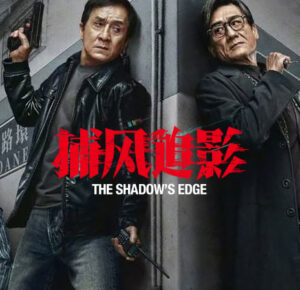
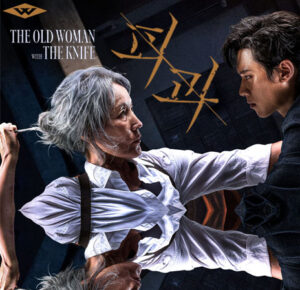

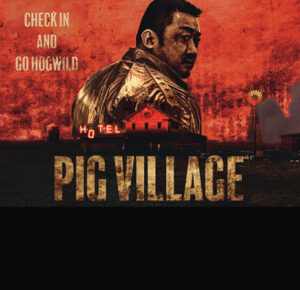
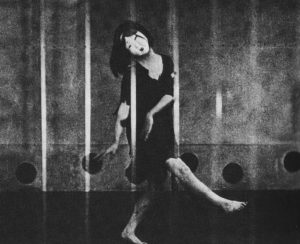
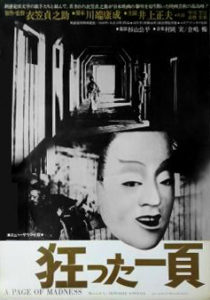
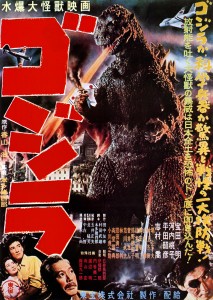
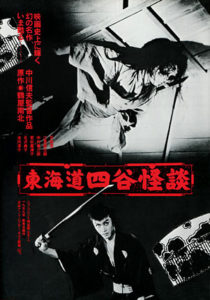
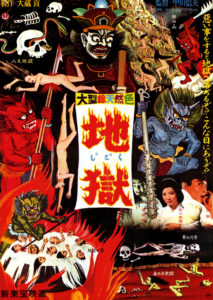
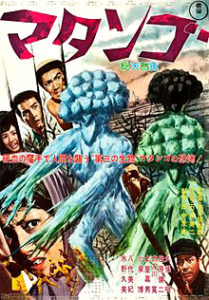
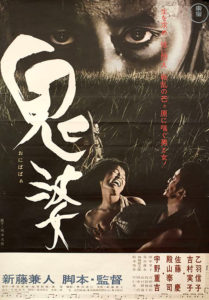
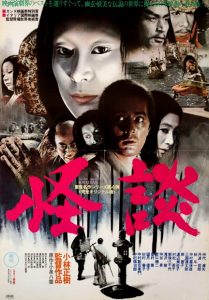
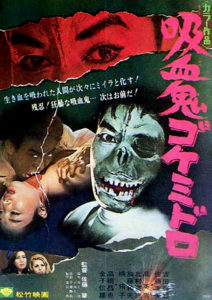
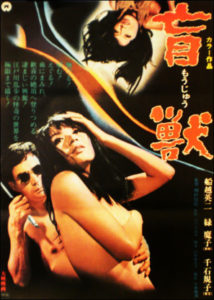
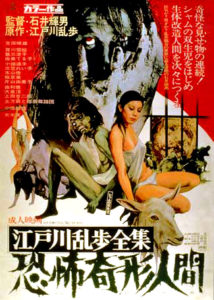
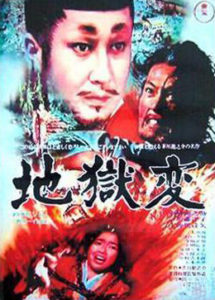
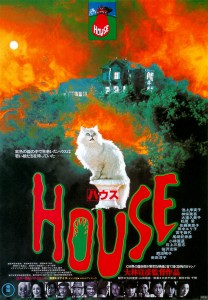
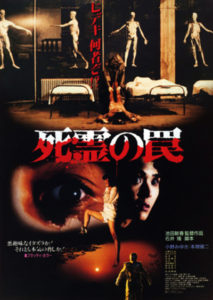
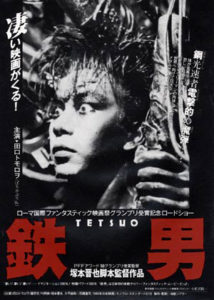
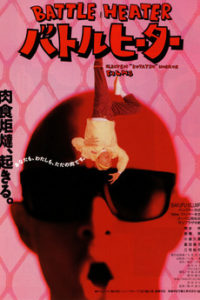
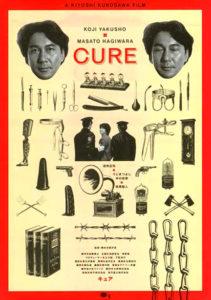
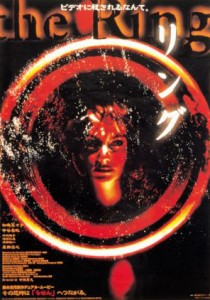
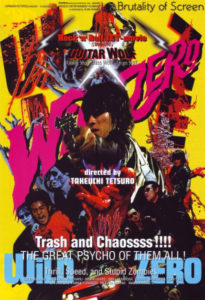
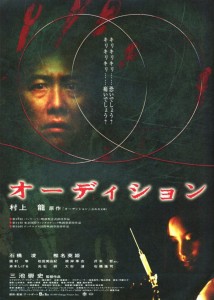
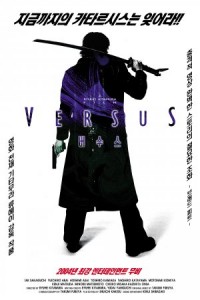
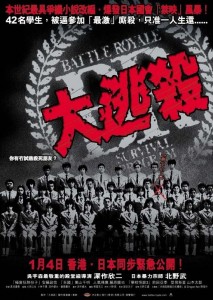
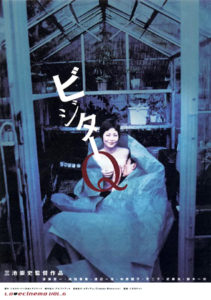
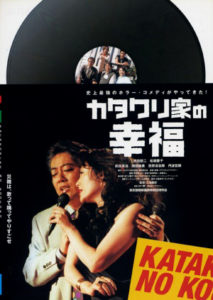
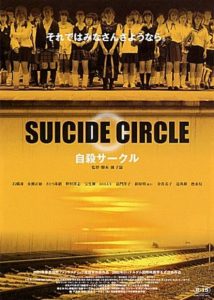
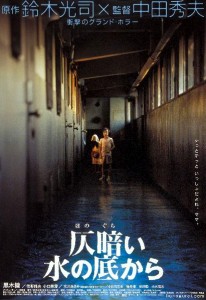
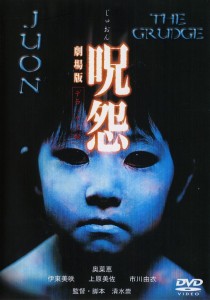
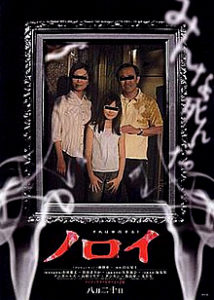
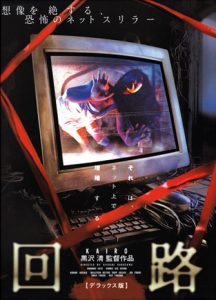
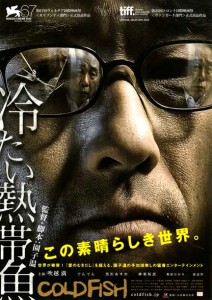

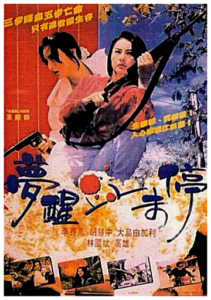
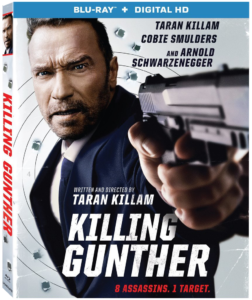


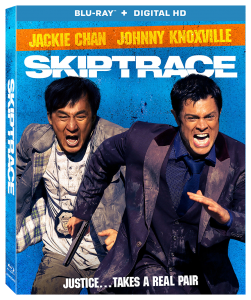
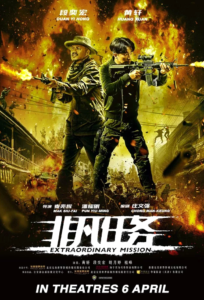
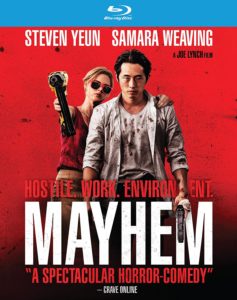
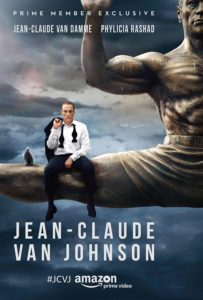
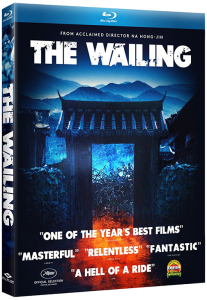
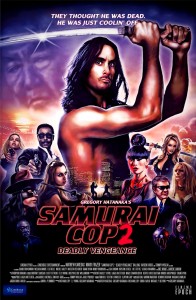
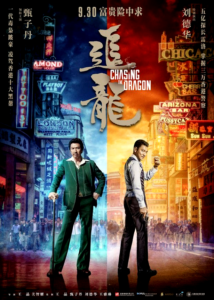
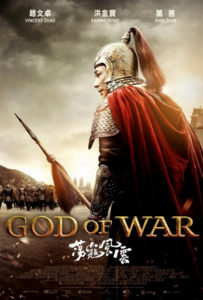
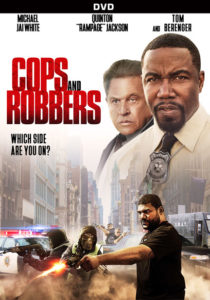


13 Comments